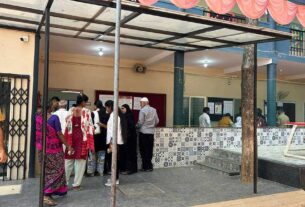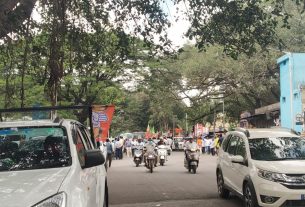Despite announcing a proposal to build state-run barbershops, the Karnataka social welfare department has not seemed to make progress in taking the proposal forward.
The Karnataka Social Welfare Ministry had proposed the construction of state-run barber shops in rural areas of Karnataka in 2021 in order to combat caste discrimination. However according to the officials no such proposal have entered the execution stage.
Sushma, an officer who works in the department said
“I checked with other officials during our meetings and there seemed to be no mention of it in the 2021 action plan (for executing policies drafted by the ministry).There are no further plans to make such shops”.
This happened after numerous reports of caste-related conflicts had broken out when people from scheduled caste communities and the other backward communities tried to get their hair cut in their local barbershops.
In 2020, there was an incident in Hallare, Mysuru district, where a barber’s son was allegedly brutalized and humiliated by leaders of the local Nayak community for refusing to cease cutting the hair of people from the scheduled caste (SC), scheduled tribe (ST) and other backward castes (OBCs). He said he was also threatened by the leaders and asked to pay a fine of Rs 50,000.
Shyam, a local barber said that he is okay with such policies as long as it’s in accordance with the interests of the local barber committees and associates.
“I personally have no objections with such policies as long as the barbers have licenses. And their shops are set up in different locations so that it doesn’t negatively affect our business,” he said.But policy experts say that funds for schemes like this are hard to obtain from the state government, due to their relatively smaller size.
“The budgets for policies for social minorities such as SC/STs and gender minorities don’t tend to be very high unless the scheme is comprehensive and of larger scale,” Nitin Sharma, a professor of public policy in MIT- World Peace University, Pune said.
Sharma further stated that such policies may not be as effective in alleviating caste discrimination.
He instead suggested policies where funds would be provided to SC/ST communities to create income-based job opportunities and facilitate entrepreneurship. He said that such policies could better augment efforts for affirmative action in rural areas.
“The government could provide funds to them instead and encourage them to pursue entrepreneurship. They could apply for funds to open their own beauty parlors and barbershops instead,” Sharma said.




